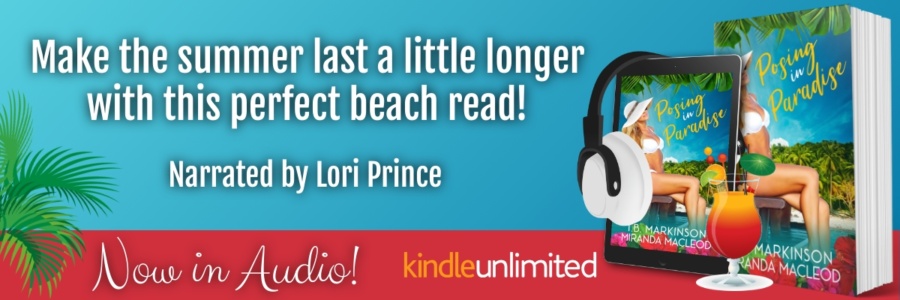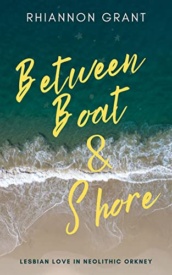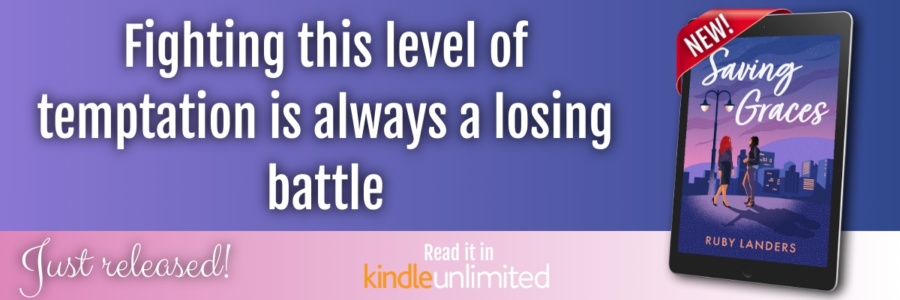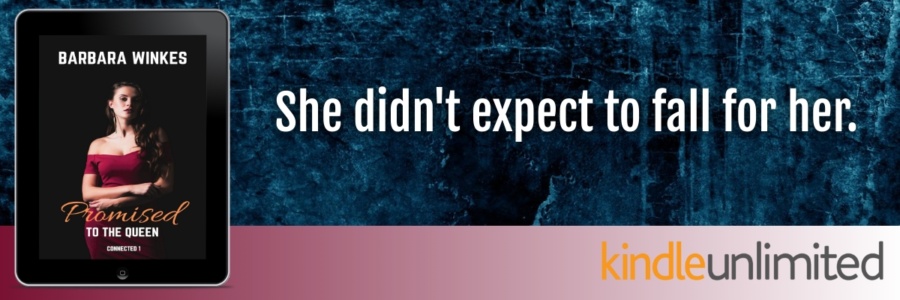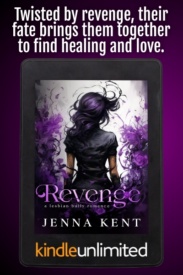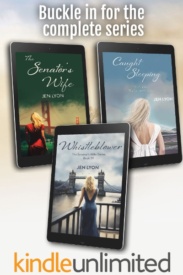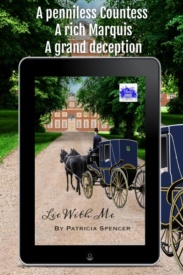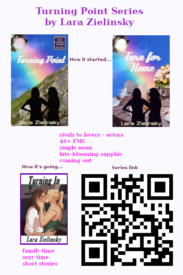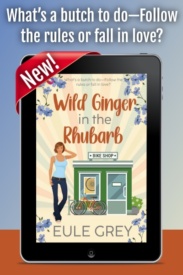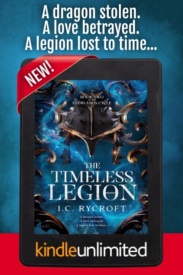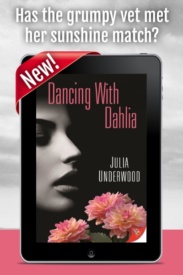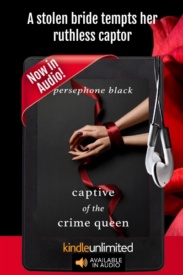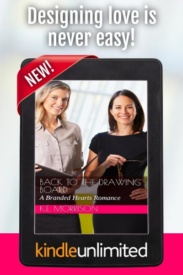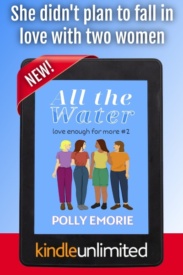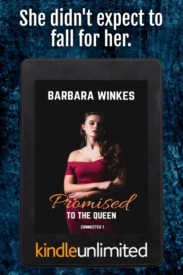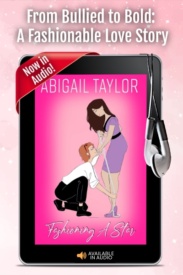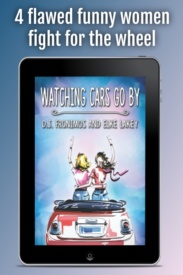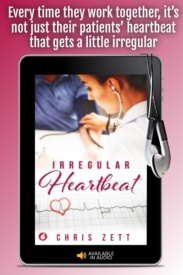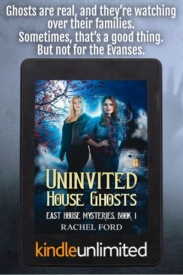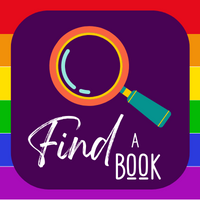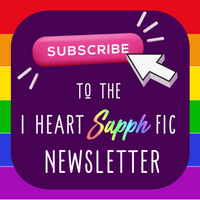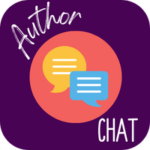
Get ready to learn more about the book Between Boat & Shore in this discussion with sapphic author Rhiannon Grant.
Join us for an exclusive peek behind the scenes as we quiz Rhiannon Grant about Between Boat & Shore, writing, reading, and more.
This book is part of the Set in the UK / Ireland category in the 2024 IHS Reading Challenge.
Why did you write Between Boat & Shore?
I’d always wanted to write something set in prehistory – as a teenager, several of my half-started projects were set in Cornwall, inspired by the stone circles and other ancient monuments there. When I visited Orkney, I soaked in the atmosphere of the amazing sites there and knew I wanted to explore them more fully in imagination, through fiction.
Who is your favorite character in the book?
I think Trebbi is my favourite – although like Trebbi, I also love Aleuks! Trebbi is similar to me, not so much as I am now, but as I was perhaps ten years ago when I was starting to find my role in my community and to offer real leadership. I think Trebbi is better at it than me and finds her way sooner, though!
How did you come up with the title for your book?
The title ‘Between Boat & Shore’ works on two levels. It’s a literal description of the very beginning of the story, where Aleuks and Heln find themselves in trouble at sea and they have to make the journey from their little boat, with Trebbi’s help, to the shore where there’s a beach and a village and safety for the winter. It’s also a metaphor for the relationship between Aleuks the traveller and Trebbi the village leader, and especially for the choice Aleuks has to make between continuing her travels or joining the settled village community.
If you’re planning a sequel, can you share a tiny bit about your plans for it?
I already wrote one! Carving a New Shape picks up a while after the end of Between Boat & Shore; Trebbi and Aleuks both appear, so we get a little update on their relationship. Mainly the story follows Laki, a bereaved young woman who visits another village for the first time and finds herself drawn to Bokka, who is something of an outsider to her own community. Together, they start to build a life in a different shape to usual, a life which will suit them both.
Where do you usually write, and what do you need in your writing space to help you stay focused?
I usually write at home, often on the sofa, almost first thing in the morning – breakfast then words. Although I sometimes squeeze in some writing later in the day, my normal writing time is between breakfast and when I have to start work, so the clock ticking away keeps me focussed. If I don’t get to my word count target before I open my work emails for the day, it’s unlikely I’ll make it at all! I usually like to be alone, and I like quiet because I’m easily distracted by noise. In an ideal world, my writing time doesn’t have music, TV, other people in a coffee shop, or anything.
How do you celebrate when you finish your book?
Quietly! I’m not all that big on parties or celebrations – my wife will tell you that I’m too British, but it also doesn’t help that I don’t like noisy places or alcohol. I’m also never entirely sure when something is really finished: there’s the first draft, then the edits, then proofs… so usually I save the celebration for publication day. We might have a small launch party or a special dinner, but most of it happens on social media, and once the pictures are posted, I’m probably curled up reading and dreaming about what to write next.
What is the most valuable piece of advice you’ve been given about writing, and by whom?
I have a quote from Virginia Woolf pinned up in my hallway – the passage from A Room of One’s Own which begins, “So long as you write what you wish to write, that is all that matters…” For me, it brings together two important pieces of writing advice. One is that I have to actually write (‘seat of the trousers on seat of the chair’, as someone else put it, although I usually wear a skirt!), whether it’s regularly or whenever I can. The other is that it has to be what I want to write; not necessarily what I already know, but what I am interested in and passionate about and want to put down in words. Remembering this quote helps me keep going even when I’m tired, or not sure whether anyone wants to read my work, or tempted to try and pretend to be someone else.
What do you do to get inside your character’s heads?
Is it a cop-out to say I imagine? I try to have as full a scene as possible: their history, what their voice sounds like and the kinds of things they notice, their dominant senses and preoccupations, the things around them, how they feel about the other people and the situation… Usually, if I’m working on a project regularly and I take the time to check in with all these details, I find I can get into a character’s head and work out what they’re going to do next pretty easily. If I’ve lost touch with them, I might re-read key scenes from earlier in the book to remind myself of their voice or revisit an image or event which inspired me when I created the character in the first place.
Describe your favorite reading spot.
Wherever I am! I’ll read almost anywhere – in the last week or so, I’ve read in a chair, on the sofa, in bed, sitting on the floor, in a hotel room, in a library, in a cafe, in the cafe at the library, on a bus, on a train, at the station when my train was cancelled, in a park, in a doctor’s waiting room, during a ten-minute break in a zoom meeting, walking round the house while on hold on the phone, and by torchlight in the dark. The better the book, the more likely I am to pick it up even in very short spaces of time.
Do you only read books in one genre or do you genre hop?
I genre hop, massively. I have times of reading regularly in one genre, but I enjoy lots of genres and in recent years I’ve also been making an effort to read more diverse authors and that’s brought different genres in too. I enjoy fantasy and some science fiction, especially time travel. I enjoy historical stories, including historical romances in various periods, and lots of factual books about history and archaeology. I read nonfiction and poetry, and romances of all sorts but with a particular interest in queer and LGBTQIA+ stories. For me, reading is about learning and looking at the world from different perspectives, but it’s also a pleasure in itself – I’ll read the cereal box or the sweet wrappers if there’s nothing else! So I always have a book on hand. I often get through more than ten books a month and that means I have space for a wide variety of genres (and have to keep requesting more from the library).


